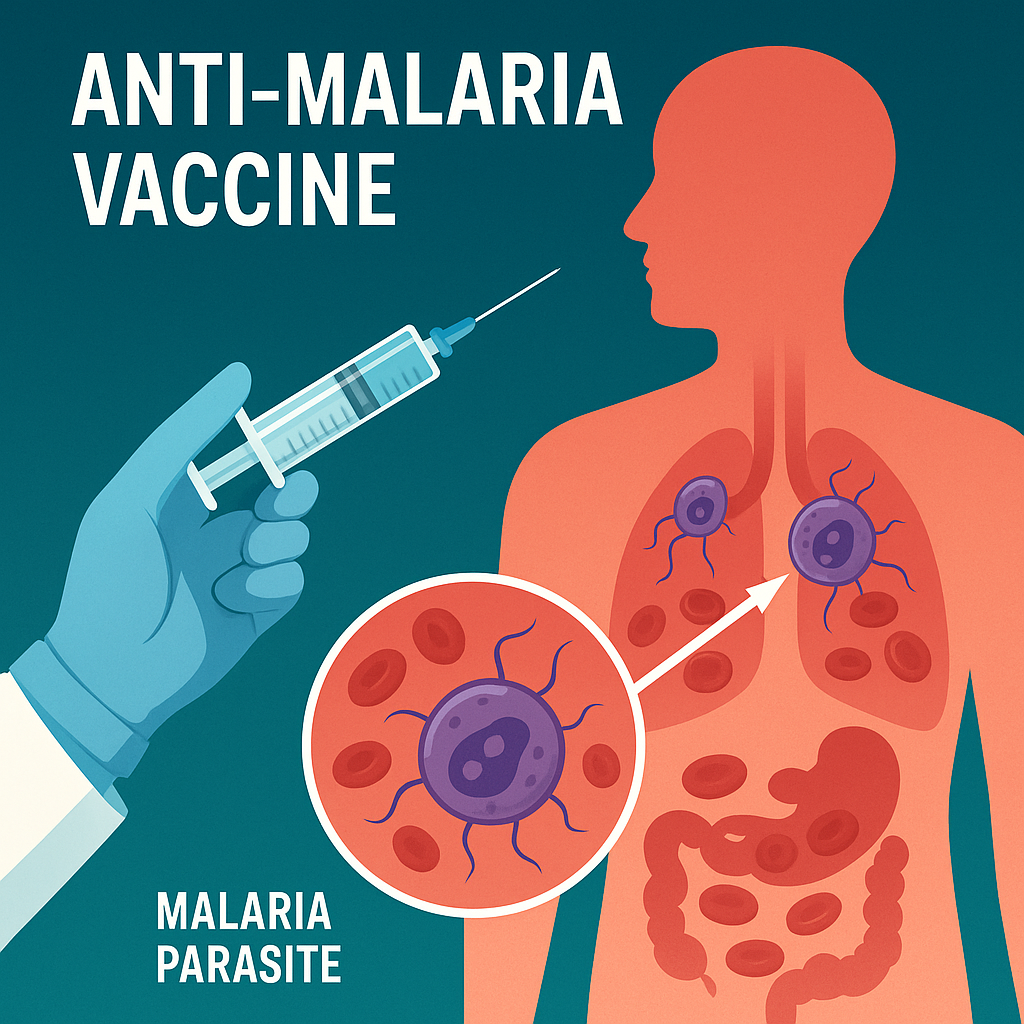Malaria continues to be one of the most challenging public health problems across tropical and subtropical regions. While existing preventive measures like insecticide-treated bed nets and antimalarial drugs have reduced the disease burden, a long-term solution lies in effective vaccination. The Indian Council of Medical Research (ICMR) has been working on an indigenous anti-malaria vaccine, AdFalciVax, aimed at tackling Plasmodium falciparum, the deadliest malaria parasite. However, the vaccine is still in the research stage and is expected to take six to seven years before it becomes widely available.
Development Timeline of AdFalciVax
The journey from research to public availability involves multiple stages. According to the projected schedule:
- Good Manufacturing Practice (GMP) production and toxicology studies will take approximately two years.
- Phase 1 clinical trial and regulatory approval will require another two years.
- Phase 2b and Phase 3 trials will take around two and a half years.
- Post-trial regulatory clearance and licensing will require about six months.
Each stage has a buffer period of ± six months, making the total estimated timeline six to seven years before the vaccine reaches the market.
About AdFalciVax
AdFalciVax is the first indigenous recombinant chimeric multi-stage malaria vaccine designed to target two critical stages of Plasmodium falciparum. This unique design aims to provide broader and longer-lasting protection compared to existing single-stage vaccines.
Early research indicates that AdFalciVax could be effective in:
- Preventing Plasmodium falciparum infection in humans.
- Minimising community transmission of the parasite.
- Offering extended thermal stability, maintaining potency for over nine months at room temperature.
- Reducing the risk of immune evasion by the parasite.
Why a New Malaria Vaccine Is Needed
Globally, malaria remains a major threat. In 2023, there were an estimated 263 million cases of malaria in 83 endemic countries—an increase of 11 million cases compared to 2022. India alone accounted for nearly half of all malaria cases in the South-East Asia region.
While current vaccines like RTS,S/AS01 and R21/Matrix-M have shown promise, their efficacy is limited. They target only the pre-erythrocytic stage of the parasite’s life cycle, which may not provide comprehensive protection.
AdFalciVax is designed to combine Pre-erythrocytic/Anti-Infection Vaccine (AIV) properties with Transmission-Blocking Vaccine (TBV) capabilities. This dual-action approach could significantly reduce infection rates and block the transmission cycle from humans to mosquitoes.

ICMR’s Technology Transfer Initiative
ICMR has invited expressions of interest from companies, manufacturers, and organisations across India to license and further develop AdFalciVax. The licensing will be on a non-exclusive basis, allowing multiple manufacturers to produce the vaccine once it is ready.
Under this collaboration:
- ICMR will provide technical support through its scientists for study planning, product development, safety and efficacy assessment, and product improvement.
- Partner companies will be responsible for manufacturing and commercialisation.
- A royalty fee of 2% on net sales will be applicable according to ICMR’s guidelines.
Advantages Over Existing Vaccines
The preclinical data suggests that AdFalciVax has several advantages over current malaria vaccines:
- Broader Protection – Targets two vulnerable stages of the parasite instead of one.
- Lower Risk of Immune Evasion – Reduces the chance of the parasite adapting to avoid immunity.
- Better Long-Term Immunity – Potential for sustained protection over time.
- Thermal Stability – Can remain effective for nine months at room temperature, making it suitable for rural and tropical distribution.
- Cost-Effective Formulation – Uses pharmaceutically approved carriers, lowering production costs.
The Road Ahead

The introduction of AdFalciVax could be a milestone in India’s malaria elimination program. However, it is important to understand that vaccine development is a lengthy and rigorous process involving safety evaluations, multiple trial phases, and regulatory approvals.
Over the next few years, research will focus on:
- Conducting large-scale trials to assess safety and efficacy in diverse populations.
- Developing efficient distribution systems for rural and high-burden areas.
- Partnering with international malaria eradication programs for wider implementation.
ICMR’s AdFalciVax represents a significant leap in India’s fight against malaria. By targeting multiple stages of Plasmodium falciparum, it promises broader and longer-lasting protection than existing vaccines. Although it will take six to seven years before it becomes available to the public, its potential to save lives and reduce malaria transmission makes it a crucial development for global health.
If successful, AdFalciVax could become a cornerstone in achieving malaria elimination goals not just in India, but worldwide.
Salman Khan, Arbaaz Khan & Bollywood Celebs Shine at Arpita Khan’s Birthday Bash


